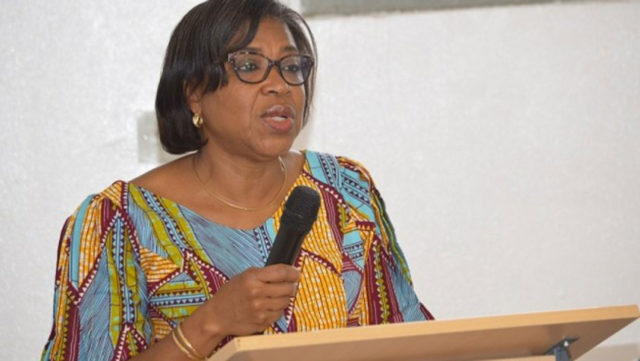Erudite Economist and professor emeritus, Olu Ajakaiye has expressed shock and disbelief that the Debt Management Office (DMO) has resorted to borrowing $6.2 billion fresh capital from the international capital markets which have been described as very expensive and against the Agency’s plan to opt for concessionary loans.

Ajakaiye, who is the Ibadan-based African Centre for Shared Development and Capacity Building while reacting yesterday, to the announcement by the DMO that it had picked some advisers to assist it to raise the $6.2 billion (N2.43 trillion) from the international markets through Eurobond, said it was more expensive raising funds through the Euro bond and also wondered why the option was preferred by the agency.
Nigeria’s cumulative public debt as of the end of March 2021 stood at $87.239 billion (N33.1 trillion).
His words: “The DMO strategy is that government will prioritise concessional loans. The Euro Bond should thus be the last resort.
“More importantly, the Federal Government should ensure that projects, which the proceeds of the Euro Bond, and indeed all foreign loans from any source will finance, should be able to generate the forex to meet interest and capital repayment obligations.
This calls for a detailed and credible analysis of the projects to ensure that they meet this standard. Equally important is the imperative of efficient and effective execution of the projects and avoidance of cost. Since the projects to be financed with the proceeds of the Euro Bond are not made public, it is hard to ascertain that these imperatives for success can be met and that eventual debt overhang can be avoided,” Ajakaiye pointed out.
Another Economist and Senior Research Fellow at the National Institute for Legislative and Democratic Studies (NILDS), Abuja, Dr. Terfa Abraham, also wondered why the Federal Government was embarking on Eurobond for which purpose was not clearly defined.
According to him, the plan is a systematic way of destroying the Nigerian economy.
It is true that borrowing is relatively not a bad idea, but the purpose must be clear and backed with effective policies for utilisation. Over the years, Nigeria’s debt profile has been on the increase, forcing public debt to exceed ₦35.5 trillion as of July 2021.
“The plan to borrow $6.2 billion capital from the international capital market through floatation of a Eurobond is a major leap towards the destruction of the economy of Nigeria. Sourcing fund from the international capital market is not wrong, however, the purpose for this action, which is to supposedly partly fund fiscal deficit, is precarious.
“In previous times, we have seen how a large chunk of loans has been used for debt servicing with no positive return to combat our present economic reality even in the face of the COVID-19 pandemic. The government should look beyond sourcing for revenue through tax and focus on channelling funds to capital projects in the country under the right policies ad regulatory environs.
It is true that borrowing is relatively not a bad idea, but the purpose must be clear and backed with effective policies for utilisation. Over the years, Nigeria’s debt profile has been on the increase, forcing public debt to exceed ₦35.5 trillion as of July 2021.
“The plan to borrow $6.2 billion capital from the international capital market through floatation of a Eurobond is a major leap towards the destruction of the economy of Nigeria. Sourcing fund from the international capital market is not wrong, however, the purpose for this action, which is to supposedly partly fund fiscal deficit, is precarious.
“In previous times, we have seen how a large chunk of loans has been used for debt servicing with no positive return to combat our present economic reality even in the face of the COVID-19 pandemic. The government should look beyond sourcing for revenue through tax and focus on channelling funds to capital projects in the country under the right policies ad regulatory environs.
The government may also want to take a second look at its policy decision to give big corporations tax holidays, as this constitutes a major source of leakage to the government’s revenue stream”, he added.
The DMO, on Wednesday, said in order to implement the budget for the 2021 fiscal year, the Federal Government has concluded plans to borrow from the international capital market N2.43 trillion, being the approved external borrowings of the country for the year.
The Director-General of the Debt Management Office (DMO), Ms. Patience Oniha who announced the plan in a statement, said already eight transaction advisers have been selected to pursue the loans acquisition.”
Support InfoStride News' Credible Journalism: Only credible journalism can guarantee a fair, accountable and transparent society, including democracy and government. It involves a lot of efforts and money. We need your support. Click here to Donate
